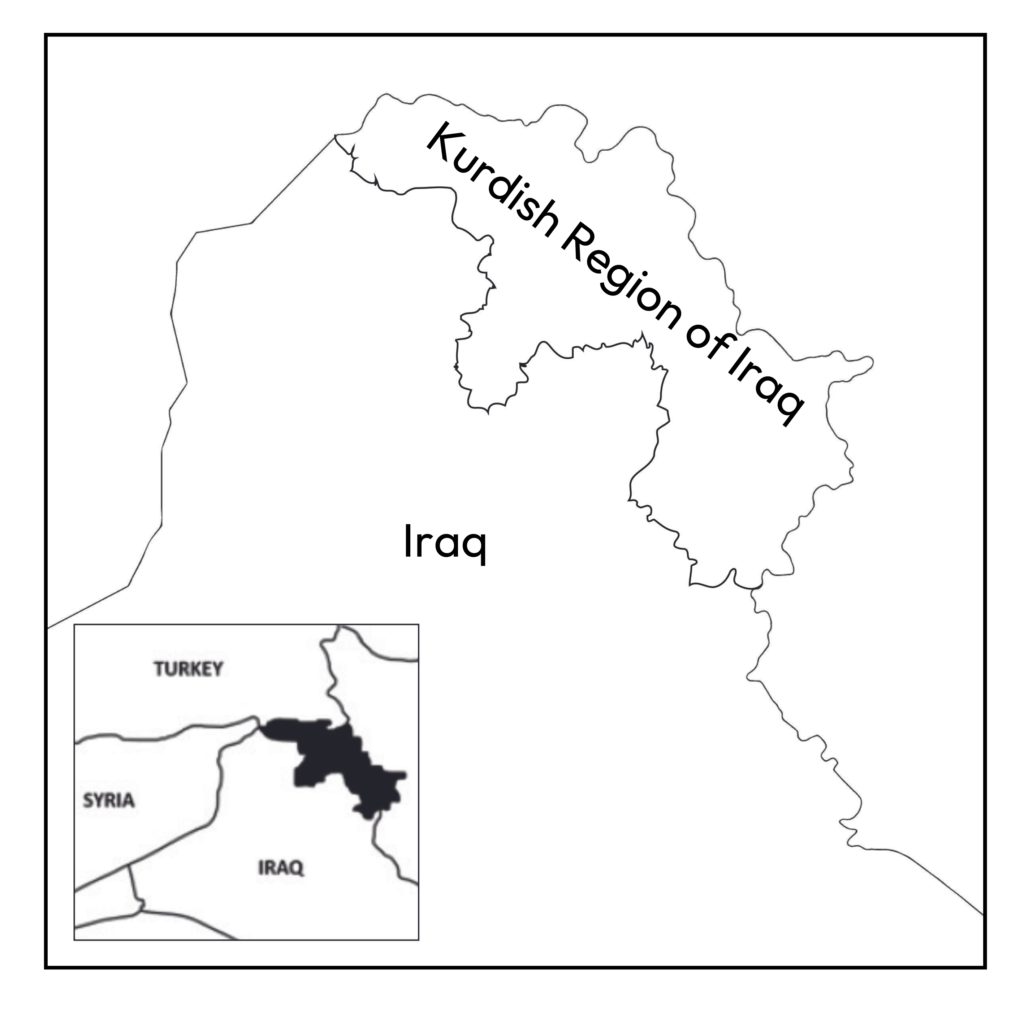In this blog, Anne Blanchflower discusses her migration research and maps out the stages of the research process
In 2020, there were an estimated 281 million migrants globally, accounting for approximately 3.6% of the world’s population. In the same year, over 3,100 migrants died enroute.1 Whereas some reasons for this migration are obvious, such as violent conflict and drought-inducing poverty, others are less so. As the debate on immigration in the UK heats up ahead of the next general election, it is important to understand why some people risk their lives to migrate from other countries to the UK. Without understanding the root causes of migration, governments are unlikely to draft appropriate policies to address the issue.

First stage – generating a hypothesis
On the 24th of November 2021 an inflatable dinghy sank in the English Channel resulting in the deaths of 27 people, 16 of whom were Kurds from the Kurdistan Region of Iraq (KRI).
I was living in the KRI at the time and the tragedy naturally came up in conversations with friends, colleagues and people I met in my daily life. Understanding why people were so desperate to migrate to the UK from the KRI became the focal point of my research. Therefore, the informal conversations I was having about the tragedy formed the basis of the ethnographic component to my thesis. However, this information needed to be formally substantiated.
To do this, I elected to analyse the contents of 25 news sources in local and international media in online print and video formats to catalogue the type and frequency of words or phrases that explained the reasons for undertaking the journey. I then assigned them to a pre-determined list of categories (economic, political, social, security, administrative/institutional and environment) before re-analysing the sources for the frequency of mentions per driver. The final analysis provided me with a working hypothesis to test.
Current stage – testing the hypothesis
To test the validity of the theory generated from the content analysis stage, I am conducting 20 semi-structured qualitative interviews with people who have migrated from the KRI to the UK, or who are planning to do so. I am using demographic characteristics to profile potential participants with the aim of covering a good cross-section of society. This enables me to determine if there are generic causes for this migration or whether the causes differ depending on an individual’s socio-economic level, age, level of education and family ties, etc. The interviews also enable me to investigate the secondary research questions of why people were choosing the UK as their destination country and what impact this emigration is having on the KRI.
The final stage – preliminary findings
Although the interview stage is not yet complete, from the content analysis stage of the research, it is clear that there is a plethora of different causes for migration from the KRI to the UK. Preliminary findings from this stage and the interviews conducted so far, suggest that factors such as socio-economic level, level of education, political affiliations and network of contacts play a significant role in the decision to leave the KRI and the route taken2. As a result, it currently appears that the root causes for migration differ from one segment of the population to another. Therefore, the results thus far suggest that merely trying to discourage general migration to the UK is unlikely to have the desired effect.
1 World Migration Report 2022, United Nations International Organisation for Migration (IOM), 2022.
2 This includes formal routes such as student visas and undocumented routes taken by those illegible for a visa.

Anne Blanchflower is a final year PhD student in the Kurdish Studies Centre at the Institute of Arabic and Islamic Studies (IAIS) at the University of Exeter, UK. Following her MA in International Relations, Anne spent 15 years in FinTech sales before enrolling part-time on the PhD programme and relocating to Erbil, Iraq for three years where she lectured in English, International Relations and Diplomacy. In 2023 she switched to full-time to complete her thesis.
